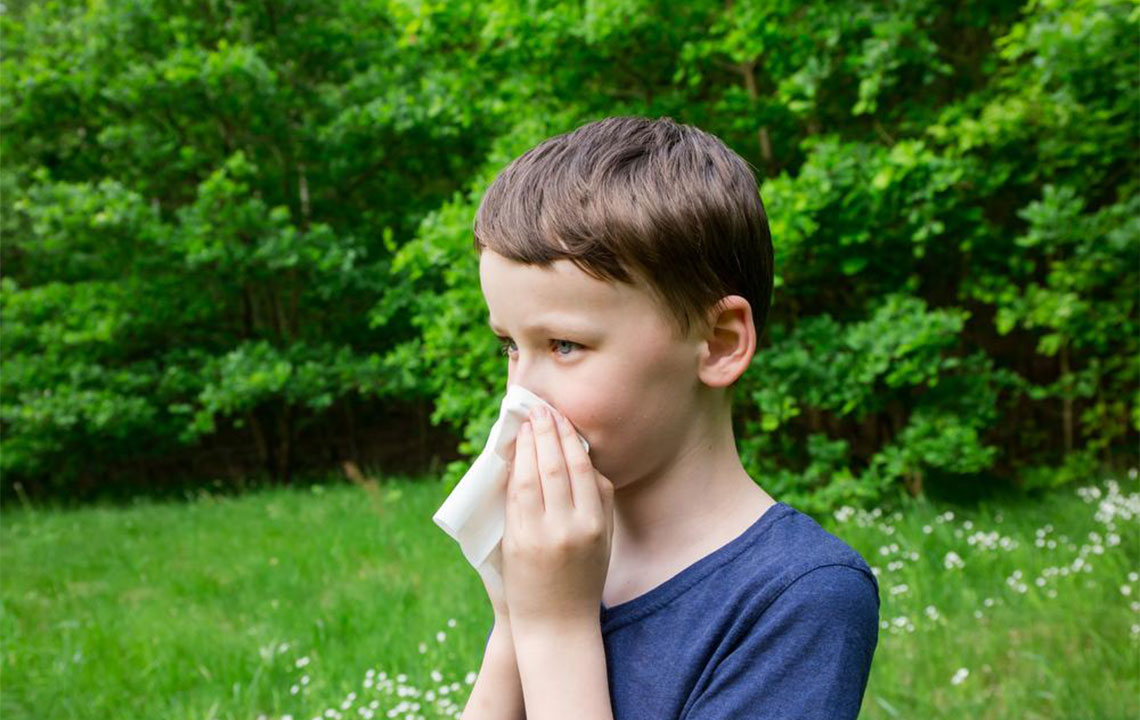Comprehensive Guide to Non-Drowsy Allergy Relief Solutions
Discover effective non-drowsy allergy relief options, including newer antihistamines and natural strategies. Learn how to manage allergies without drowsiness, enhancing daily activity and quality of life with safe, proven solutions.

Comprehensive Guide to Non-Drowsy Allergy Relief Solutions
Dealing with allergy symptoms can be challenging, especially when traditional medications cause unwanted drowsiness that hampers daily functioning. Fortunately, medical science has made significant progress in developing non-drowsy allergy treatments that effectively alleviate symptoms without compromising alertness. These innovative options are now widely available around the world, providing allergy sufferers with healthier, safer alternatives to conventional sedating medications. Understanding these options is crucial for managing allergies effectively while maintaining your daily productivity and quality of life.
Popular Medications for Allergic Symptoms
In managing allergy symptoms, antihistamines are among the most commonly prescribed medications. They play a vital role in reducing symptoms such as sneezing, nasal congestion, watery eyes, and skin itchiness. Antihistamines work by blocking the effects of histamine, a chemical released by the immune system during allergic reactions. The development of non-sedating or non-drowsy antihistamines has revolutionized allergy management, allowing users to experience symptom relief without the sedative side effects associated with older drugs.
Traditional antihistamines like diphenhydramine often caused side effects such as dry mouth, dizziness, blurred vision, and drowsiness, which could interfere with daily activities. These side effects made it difficult for allergy sufferers to stay alert at work or perform routine tasks. Realizing this issue, researchers developed newer, non-sedating antihistamines that target allergy symptoms efficiently without inducing drowsiness. These newer medications, often referred to as non-sedating histamines, have comparable effectiveness to their predecessors but significantly fewer adverse effects, making them ideal for continuous use.
Understanding Non-Drowsy Allergy Medications
The most effective non-drowsy allergy medications primarily contain active ingredients like cetirizine, loratadine, and levocetirizine. These drugs are designed to selectively block histamine receptors in the body, preventing allergic responses without crossing the blood-brain barrier—thus avoiding sedation. They are especially effective for managing seasonal allergies, including sneezing, itching, runny nose, and watery eyes.
For more comprehensive relief, these medications are sometimes combined with nasal decongestants, providing additional relief from nasal congestion and pressure. However, combining medications should always be done under medical supervision to prevent potential interactions or side effects. Always consult your healthcare provider before starting or combining allergy medications, especially if you are pregnant, nursing, or have underlying health conditions.
Although non-drowsy antihistamines are generally well-tolerated, some individuals might experience mild side effects. Common adverse reactions include:
Headache and fatigue
Dry mouth
Dizziness
Redness or irritation in the eyes
Constipation or abdominal discomfort
Diarrhea or sore throat
If you experience persistent or severe side effects, it is essential to contact your healthcare professional promptly for assessment and possible alternative treatments.
Natural Remedies as Complementary or Alternative Options
Besides pharmaceutical solutions, many individuals turn to natural strategies to reduce allergy symptoms and minimize reliance on medications. These approaches can be particularly beneficial for those seeking holistic or preventive methods. Some effective natural allergy management practices include:
Reducing exposure to environmental allergens by staying indoors during peak pollen times and avoiding dust and mold.
Performing saline nasal rinses regularly to clear allergens from nasal passages, providing relief from congestion and irritation.
Using air purifiers equipped with HEPA filters to improve indoor air quality and reduce airborne allergens.
Employing allergen-proof bedding and maintaining a dust-free living environment to minimize exposure during sleep.
Supporting immune health with dietary supplements like fish oil, quercetin, and acetyl-cysteine, which have anti-inflammatory and antihistamine properties.
Incorporating allergy-fighting foods into your diet, such as broccoli, kale, cauliflower, and cabbage, which help strengthen your immune system and reduce inflammation.
Adopting these routines can significantly lessen allergy severity and improve overall quality of life. Combining these natural practices with non-sedating medications offers a comprehensive strategy for allergy management.Overall, the availability of non-drowsy allergy treatments marks a significant advancement in allergy care, enabling millions to manage their symptoms effectively without sacrificing alertness or productivity. Whether through prescribed non-sedating antihistamines or natural health practices, it’s possible to find a balanced, health-centric approach to allergy relief. Always consult healthcare professionals to tailor a plan that best suits your specific allergy profile and lifestyle needs — ensuring safe and effective symptom control over the long term.





